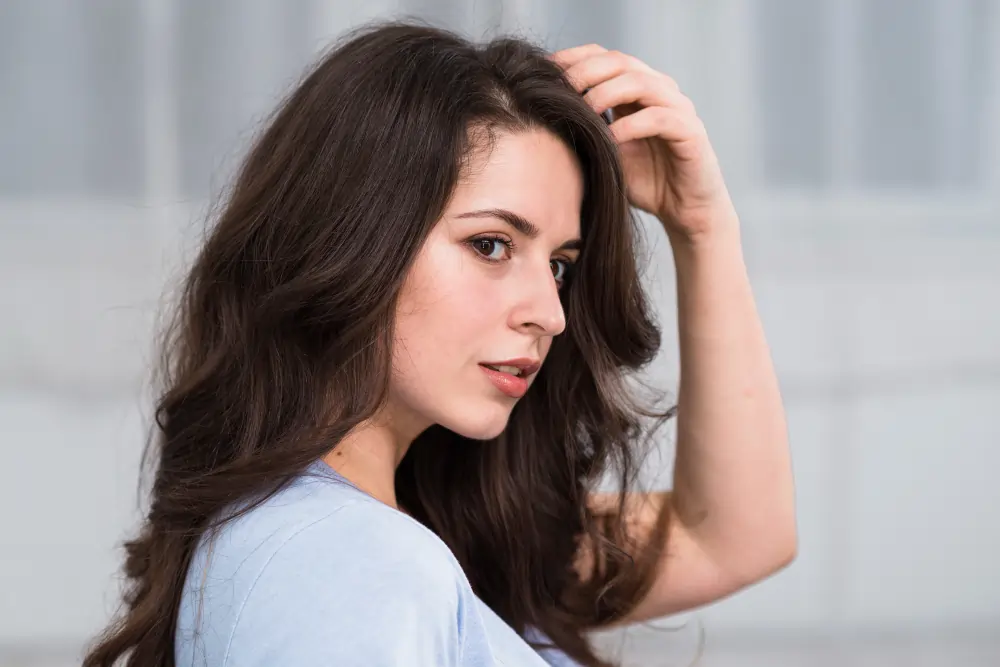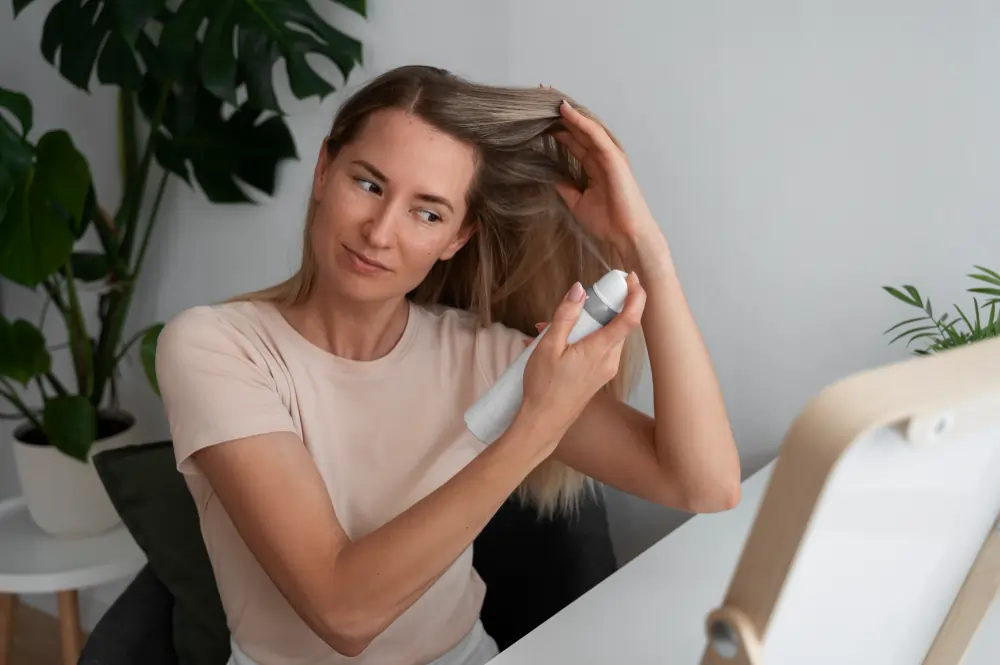
Introduction
Our hair is our crowning glory, and it provides a window into our overall health and well-being. So, when premature graying hair becomes a reality, it can be quite distressing. Premature graying hair can affect anyone, regardless of age or gender. In this article, we will explore the symptoms, causes, and the best treatments available for premature graying hair. Let’s dive in and uncover the mysteries behind this fascinating yet frustrating phenomenon.
What is Premature Graying Hair?
Hair graying is a natural part of the aging process, usually associated with the later stages of life. However, premature graying hair occurs when gray or white strands start appearing before the age of 20 in Caucasians, and before the age of 30 in people with darker skin tones. It can significantly impact an individual’s self-esteem and confidence, making it essential to understand its symptoms, causes, and available treatments.
Symptoms of Premature Graying Hair
Premature graying hair is characterized by the early appearance of gray or white hairs on the scalp or other parts of the body. Here are some common symptoms to watch out for:
1. Gray or White Hair Strands
The most obvious symptom is the presence of gray or white hair strands that stand out against the natural color of your hair. These strands may appear randomly or in clusters, gradually increasing over time.
2. Progressive Graying
Premature graying hair is a progressive condition, meaning it develops gradually. Initially, you may notice a few gray or white hairs, but their number tends to increase as time goes by.
3. Diffuse Graying
Premature graying hair often affects the entire scalp rather than being limited to specific areas. This diffuse graying can give the impression of a significant change in hair color.
Causes of Premature Graying Hair
Understanding the underlying causes of premature graying hair can help in finding the best treatment options. While genetics play a significant role, several other factors contribute to this frustrating condition:
1. Genetics
Genetics is one of the primary causes of premature graying hair. If your parents or close relatives experienced premature graying, you are more likely to develop it as well.
2. Melanin Deficiency
Melanin is a pigment responsible for hair color. As we age, the production of melanin decreases, leading to the graying of hair. In some cases, this reduction in melanin production can occur prematurely.
3. Vitamin Deficiencies
Inadequate intake of certain vitamins, such as vitamin B12, vitamin D, and vitamin E, can contribute to premature graying hair. These vitamins play a crucial role in hair health and pigmentation.
4. Stress and Lifestyle Factors
Stress, along with an unhealthy lifestyle, can also expedite the graying process. Excessive smoking, alcohol consumption, and a poor diet lacking essential nutrients can all contribute to premature graying hair.
Best Treatments for Premature Graying Hair

Although there is no definitive cure for premature graying hair, several treatments can help slow down the progression or cover up the graying strands. Let’s explore some of the best options available:
1. Hair Dyes
Hair dyes provide a quick and easy solution to cover up gray or white hair. Choose a shade closest to your natural hair color or experiment with new looks. Opt for semi-permanent dyes, as they are less damaging to the hair.
2. Henna
Henna, a natural plant-based dye, has been used for centuries to color hair. It not only covers graying hair but also conditions and nourishes the strands, promoting overall hair health.
3. Lifestyle Changes
Incorporating healthy lifestyle habits can play a significant role in reducing premature graying hair. Ensure a balanced diet rich in vitamins and minerals, manage stress levels through relaxation techniques, and avoid damaging hair practices like excessive heat styling.
4. Supplements
Supplements containing vital nutrients can help combat vitamin deficiencies contributing to premature graying hair. Consult with a healthcare professional to determine the appropriate supplements for your needs.
5. Topical Treatments
Certain topical treatments containing ingredients like catalase, folic acid, and biotin claim to reverse premature graying hair. However, their effectiveness varies from person to person.
Conclusion
Premature graying hair may pose a significant challenge for individuals seeking to maintain their youthful appearance. While there is no guaranteed solution, understanding the symptoms and causes can help in selecting the most suitable treatment options. Embracing natural remedies, making lifestyle changes, and seeking professional advice can all contribute to managing and potentially slowing down the progression of premature graying hair. Remember, your hair tells a story, and a few gray strands can add character and wisdom to your overall appearance.
FAQs
Q1. Can stress cause premature graying hair?
While stress doesn’t directly cause premature graying hair, it can contribute to the process. Excessive stress can disrupt the normal hair growth cycle, leading to premature hair loss and graying.
Q2. Is premature graying hair reversible?
In most cases, premature graying hair is irreversible. However, certain treatments and lifestyle changes can help slow down the progression and improve the appearance of gray strands.
Q3. Are there any home remedies to prevent premature graying hair?
While home remedies like applying a paste of curry leaves or onion juice to the scalp are popular, their effectiveness is not scientifically proven. It’s best to consult with a healthcare professional for proper guidance.
Q4. Can sunlight cause hair to turn gray prematurely?
Excessive exposure to sunlight can damage hair proteins, affecting their color and making them weaker. However, sunlight alone is not a direct cause of premature graying hair.
Q5. Can using hair color or dye worsen premature graying hair?
Hair color or dye does not worsen premature graying hair. In fact, it can effectively cover up gray or white strands, providing a temporary solution for those seeking to maintain their natural hair color.


